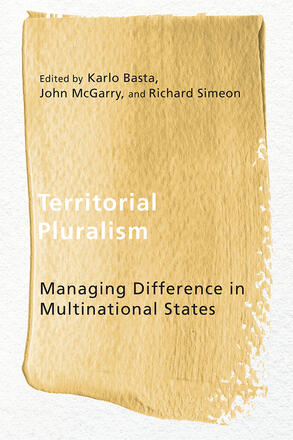
Leading scholars and government advisors demonstrate the relevance of territorial pluralism for the management of difference in plural states.
Description
Territorial pluralism is a form of political autonomy designed to accommodate national, ethnic, or linguistic differences within a state. It has the potential to provide for the peaceful, democratic, and just management of difference. But given traditional concerns about state sovereignty and unity, how realistic is it to expect that a state will agree to recognize and empower distinct substate communities? The contributors to this book answer this question by examining a wide variety of cases, including those in developing and industrialized states and democratic and authoritarian regimes. They find that territorial pluralism remains a legitimate and effective means for managing difference in multinational states.
Reviews
This is undoubtedly a definitive and comprehensive volume; it will be an invaluable source book for policymakers and scholars alike who have an abiding interest in the management of differences in multinational states.
- Kham Khan Suan Hausing, University of Hyderabad